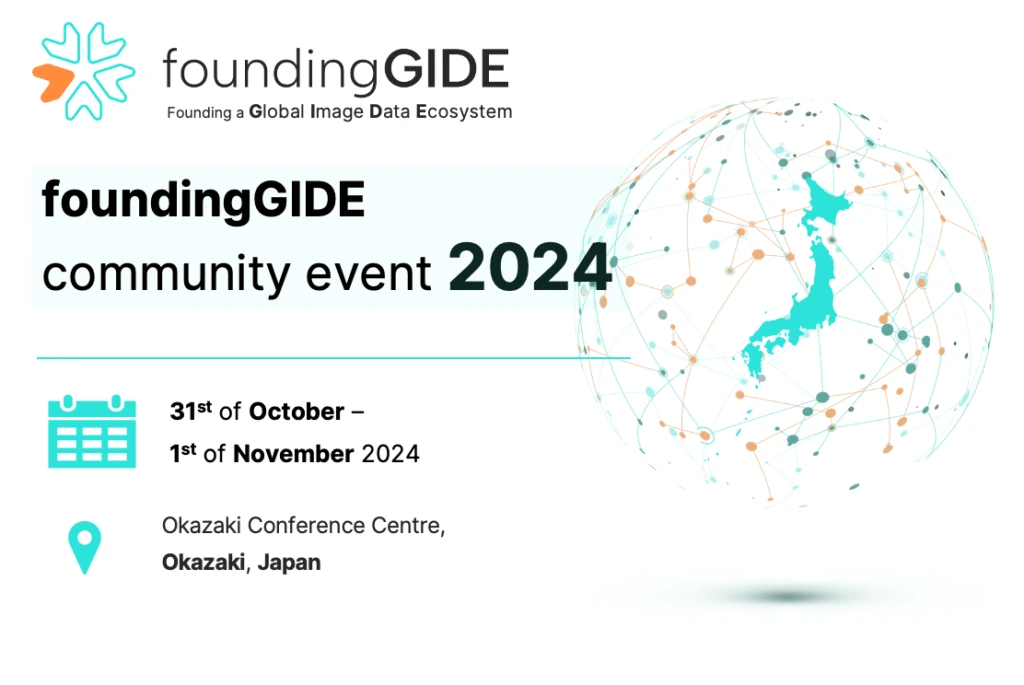
foundingGIDE Community Event 2024 in Okazaki, Japan
The first foundingGIDE Community Event in Okazaki, Japan was an inspiring milestone, bringing together experts from around the world to shape the future of open science for bioimaging. The event was held in Okazaki, Japan, back-to-back with Global BioImaging Exchange of Experience and it brought together global imaging experts, policymakers, funders, and imaging and data researchers to drive forward solutions for FAIR biological and preclinical image data in a collaborative effort to lay the foundation for a coordinated Global Image Data Ecosystem (GIDE).
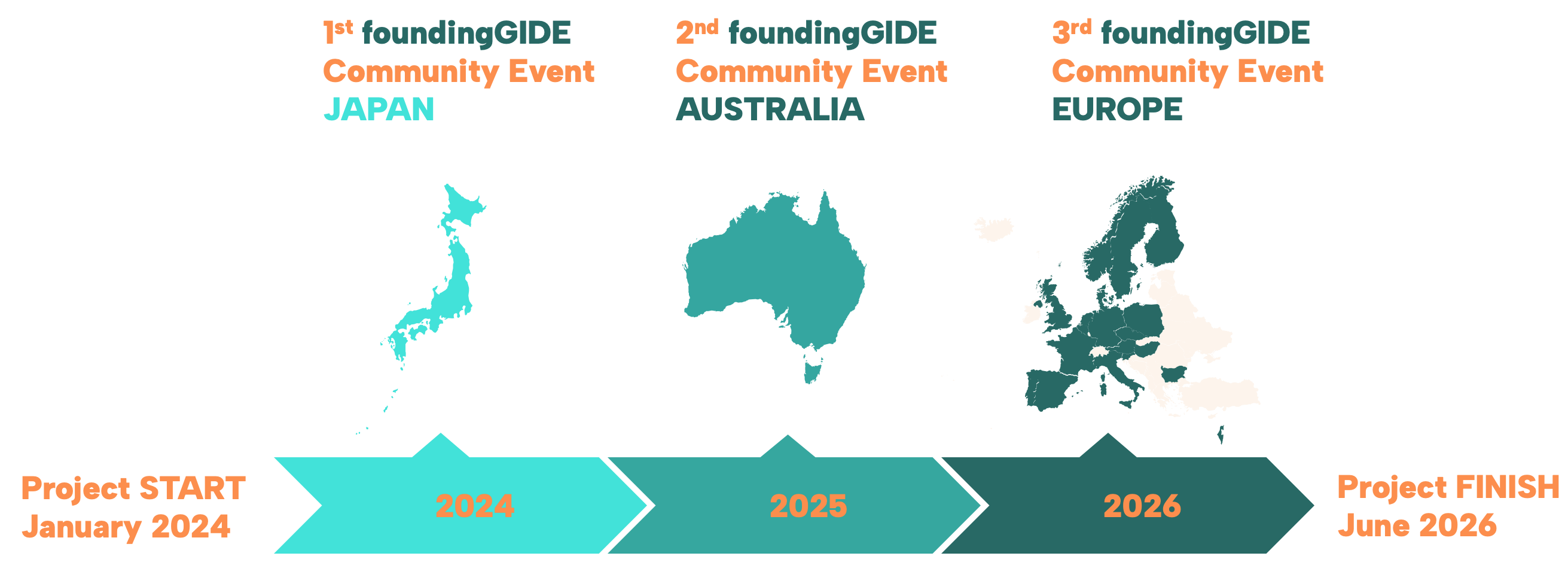
Key Insights
– Presentations
– Panels
– Breakout Sessions
Resources from the event
Next Steps
Over two dynamic days, more than 100 participants from the global imaging community—including researchers, policymakers, funders, and industry leaders—came together to share groundbreaking ideas, tackle key challenges, and explore innovative pathways toward building a truly interoperable Global Image Data Ecosystem. We’re excited to share the highlights from the event in this video as well.
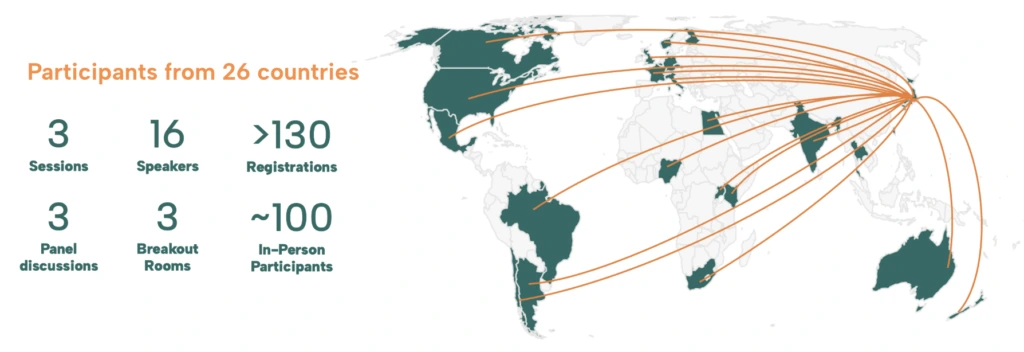
Discussions spanned a range of critical topics, including policies to support Open Science and data sharing, technical solutions to enable seamless image data exchange, lessons learned from genomics data, and the essential role of community collaboration in advancing FAIR image data practices.
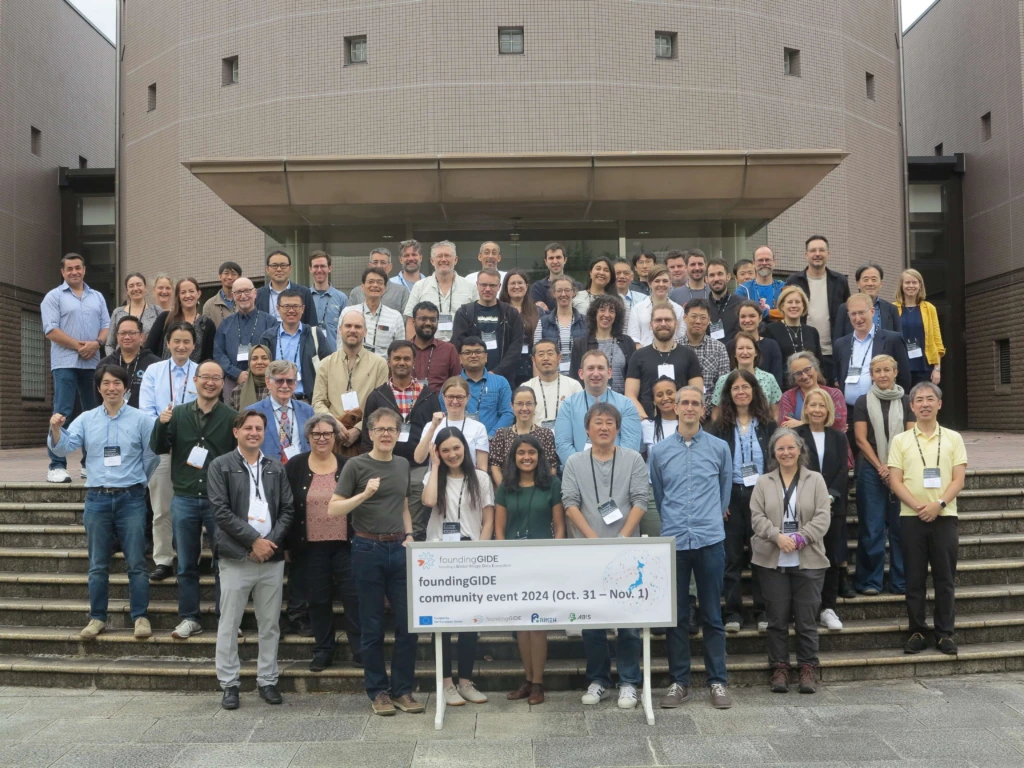
From panels on open science policy and data management to sessions diving deep into metadata, ontologies, and FAIR data principles, the event demonstrated the power of collective action in addressing some of the most pressing needs in bioimaging.
Key insights
The event had three main sessions designed to explore the current landscape of the global imaging data ecosystem: Policy and Funders, Communities; Ontologies and Metadata in BioImaging and Towards FAIR image data.
Presentations
Shuichi Onami (RIKEN) opened the event with an introduction to the foundingGIDE project, setting the stage for its objectives and vision. This was followed by John Eriksson and Aastha Mathur (Euro-BioImaging) who emphasized the importance of the imaging community and the role of Euro-BioImaging in bringing the community together not only in Europe but also globally. Several presentations addressed the pressing need for robust data-sharing platforms and metadata frameworks. Matthew Hartley (EMBL-EBI, UK) explored mechanisms for global image data interoperability using OME-NGFF, RO-Crate, and linked data. Shuichi Onami (RIKEN, Japan) provided insights into the landscape analysis of metadata usage in major bioimage repositories. Caterina Strambio De Castillia (University of Massachusetts Chan Medical School, USA) proposed a tiered system for community adoption of REMBI metadata standards to advance bioimage metadata harmonization.
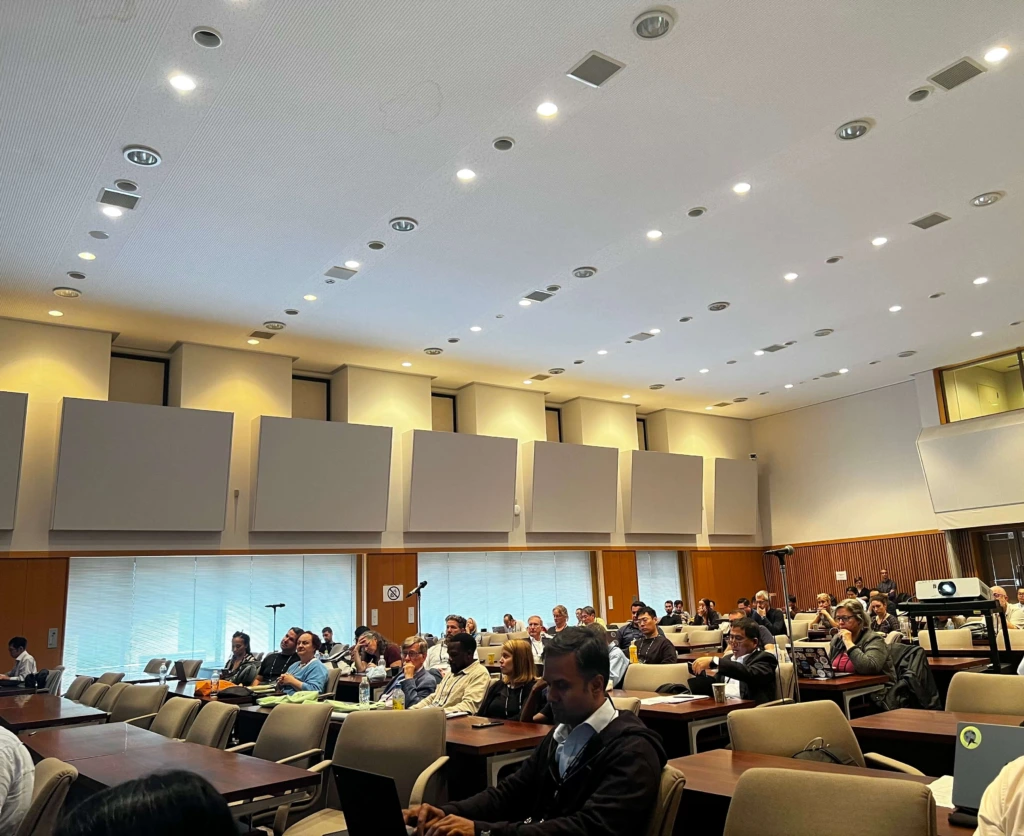
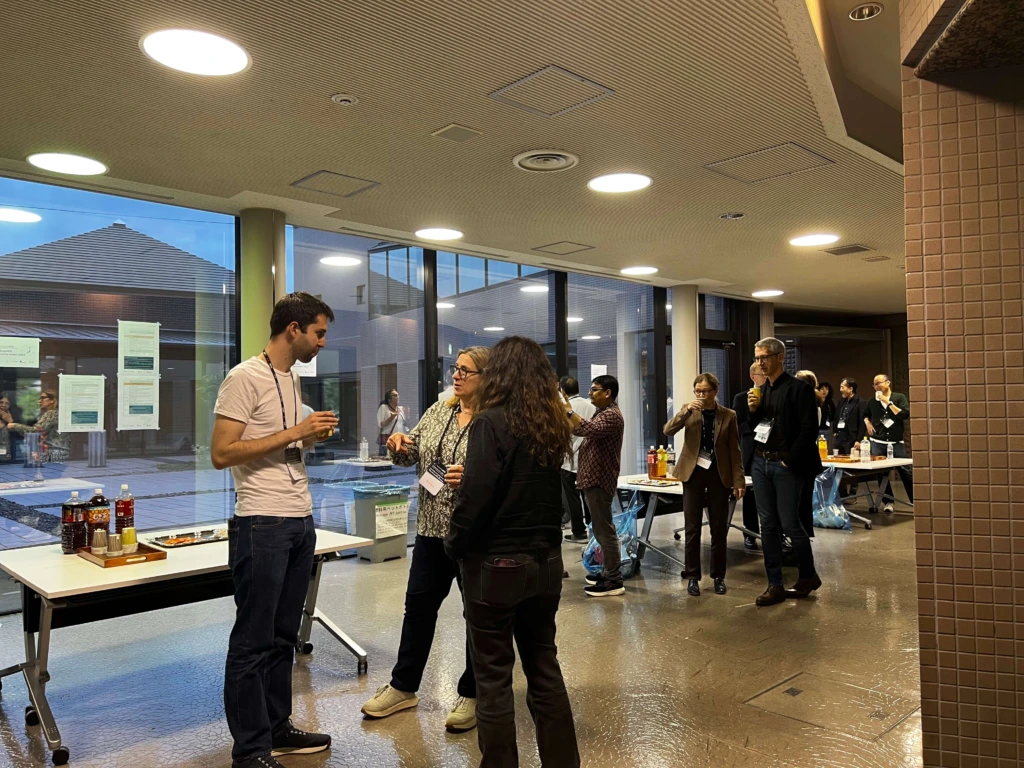
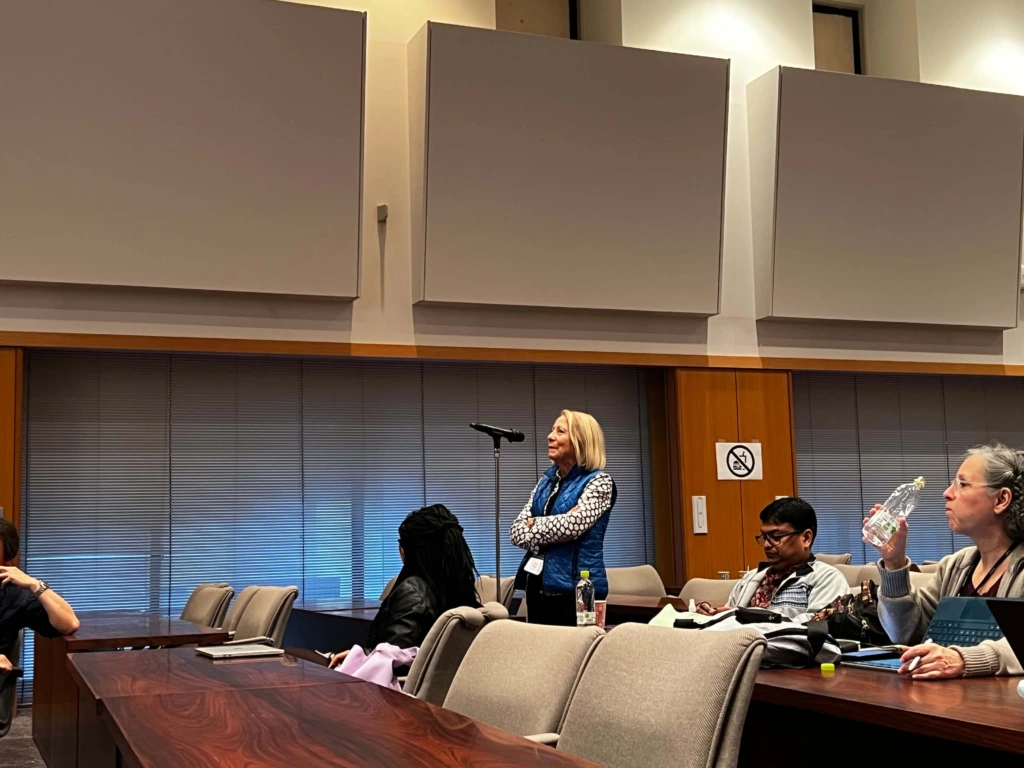
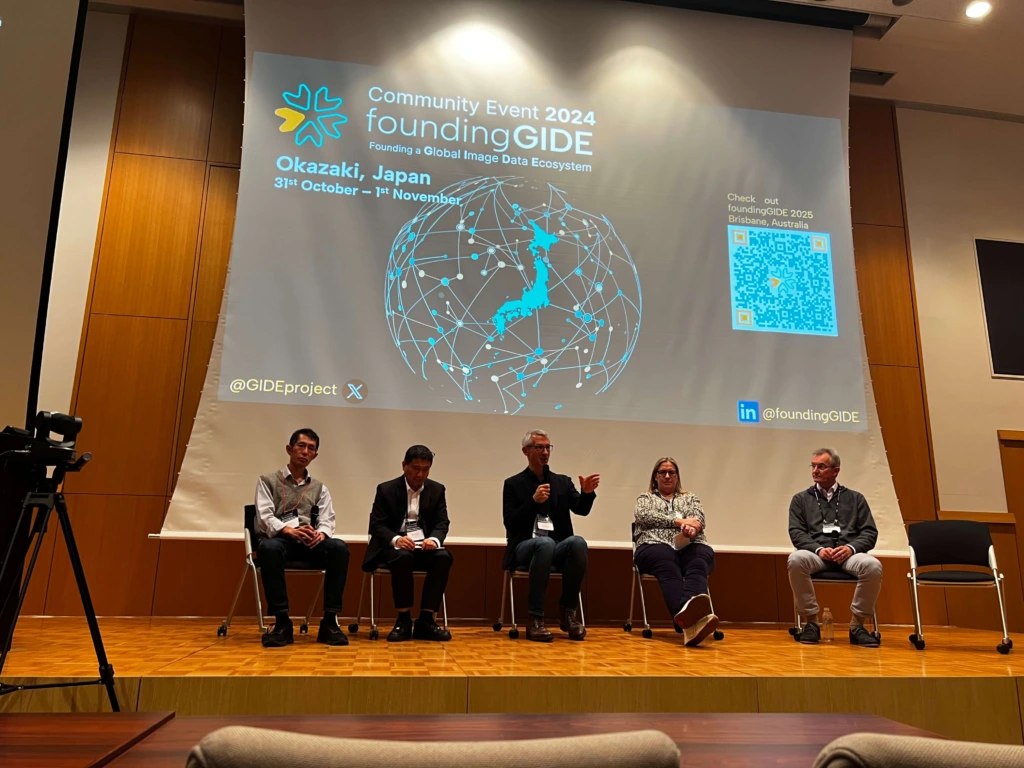
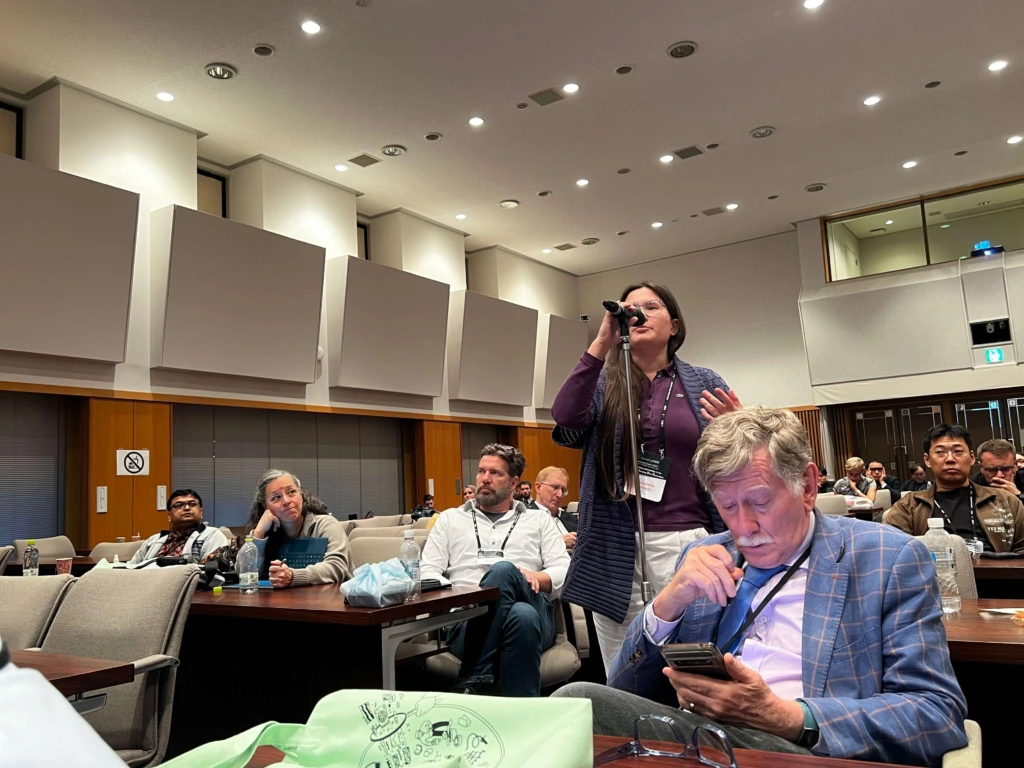
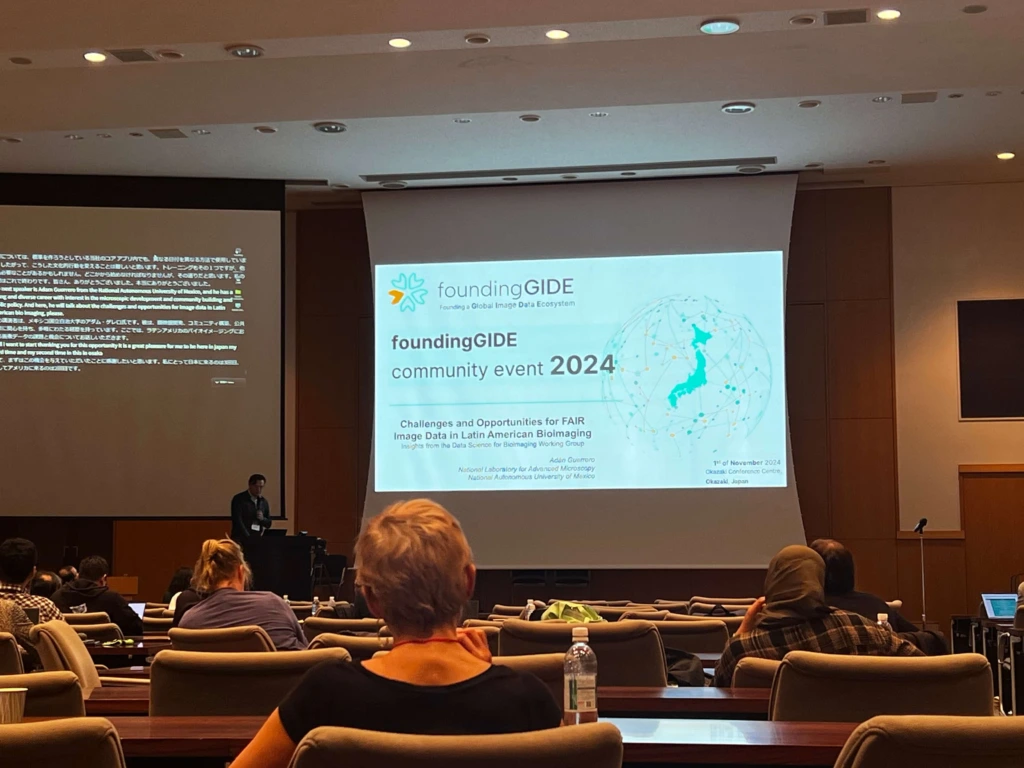
The event featured updates on national and regional strategies for digital research infrastructure. Wojtek Goscinski (National Imaging Facility, Australia) outlined the Australian Digital Research Infrastructure Strategy and its implications for the imaging community, while Kazutsuna Yamaji (National Institute of Informatics, Japan) shared progress on developing a common research data platform in Japan. Adán Guerrero (National Autonomous University of Mexico, Mexico) discussed the unique challenges faced by the Latin American bioimaging community and proposed actions to foster alignment with global FAIR practices.
The realities of data management at the ground level were emphasized in talks like Stefania Marcotti’s (King’s College London, UK) “Data in the Wild,” which highlighted the gap between facility users’ practices and idealized data standards. Anne Plant (National Institute of Standards and Technology, USA) presented approaches to making microscopy data FAIR through interlaboratory comparisons and standardization, while Aswin Narayanan (National Imaging Facility, Australia) demonstrated FAIR workflows enabled by the Neurodesk biomedical imaging analysis platform.
The event also showcased emerging tools and frameworks aimed at enhancing data integration and usability. Toshiaki Katayama (Database Center for Life Science, Japan) introduced tools for integrated FAIR data using semantic web and knowledge graph technologies, and Thomas Close (National Imaging Facility, Australia) presented Frametree, a system for mapping tree-structured data repositories into data frames to facilitate in-place analysis of large datasets.
This year’s foundingGIDE Community Event underscored the importance of global collaboration in overcoming technical, infrastructural, and cultural barriers to achieving FAIR data in biological imaging. By uniting diverse perspectives and expertise, the event fostered meaningful discussions and laid the groundwork for a global image data ecosystem (GIDE).
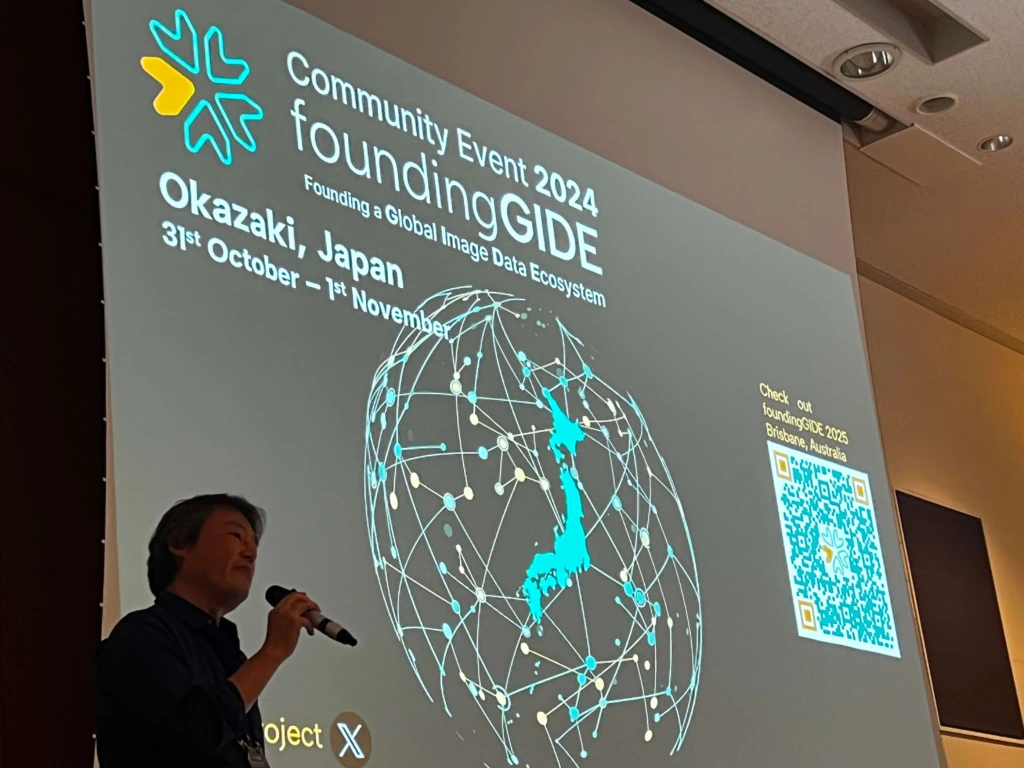
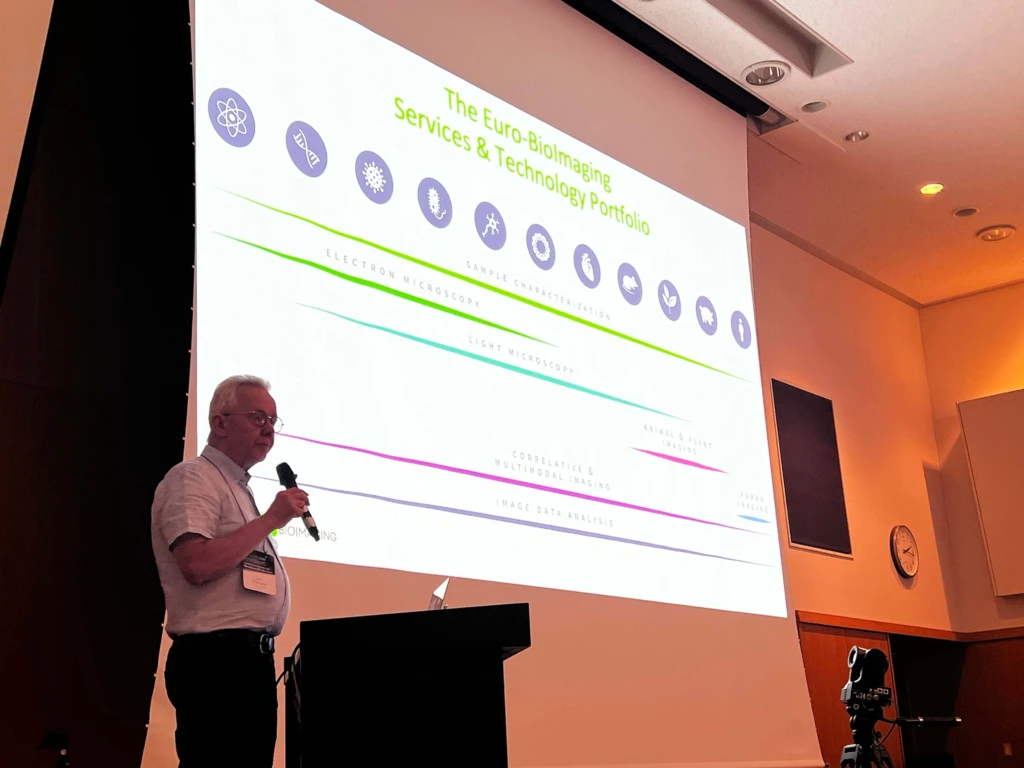
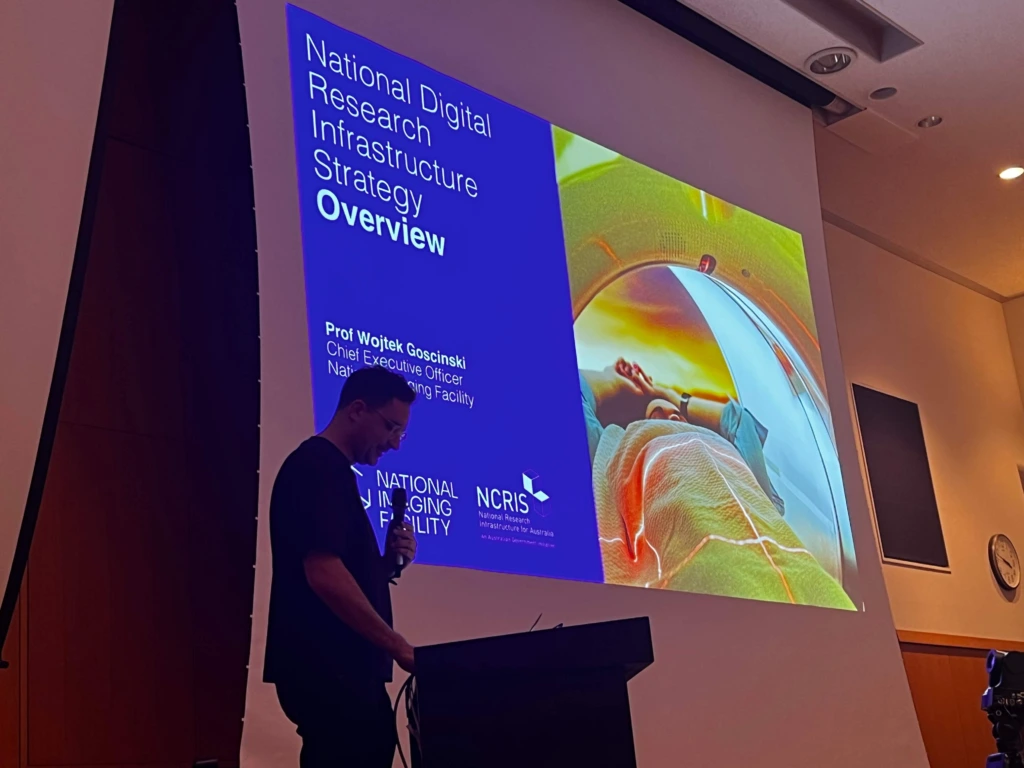
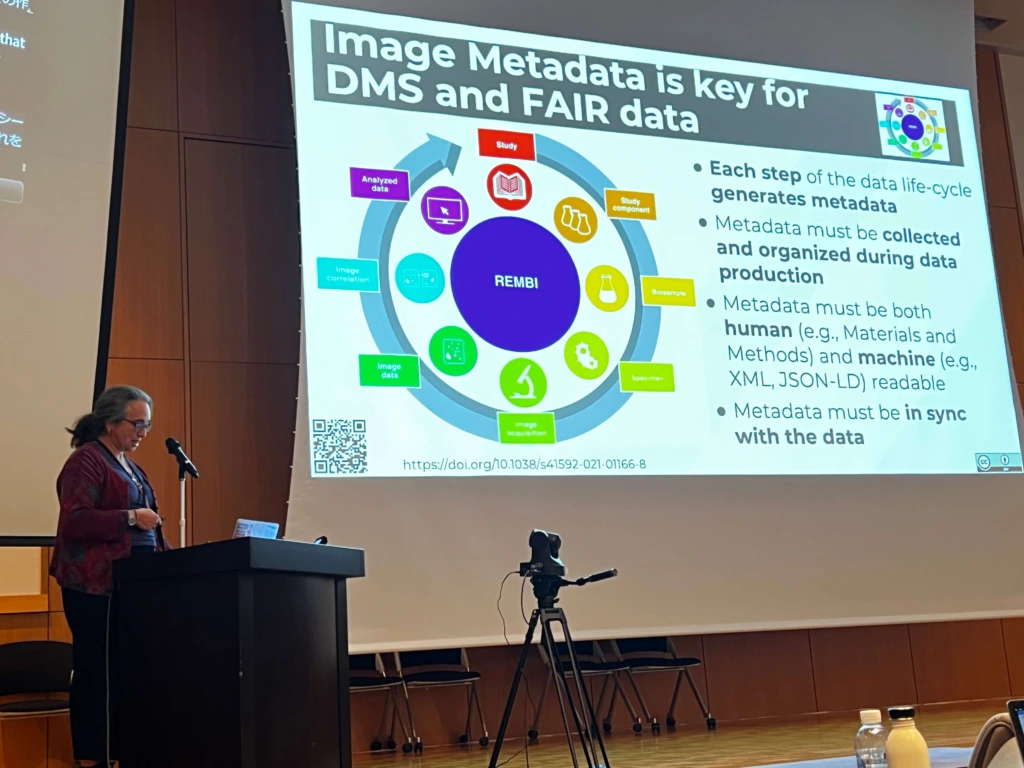
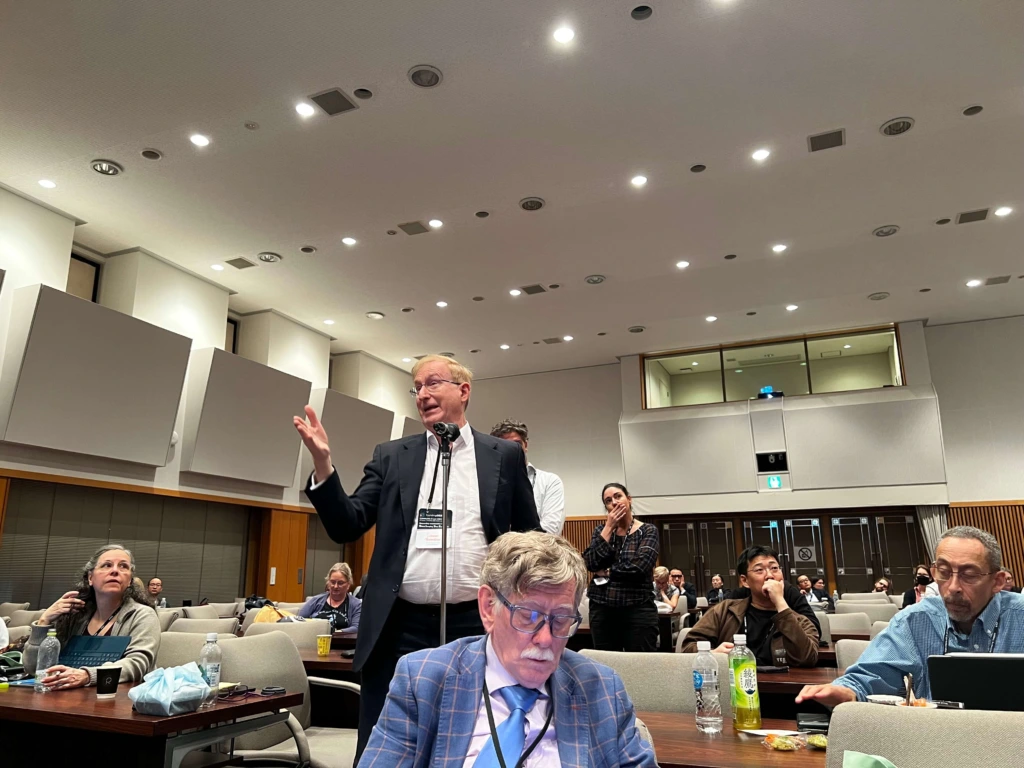
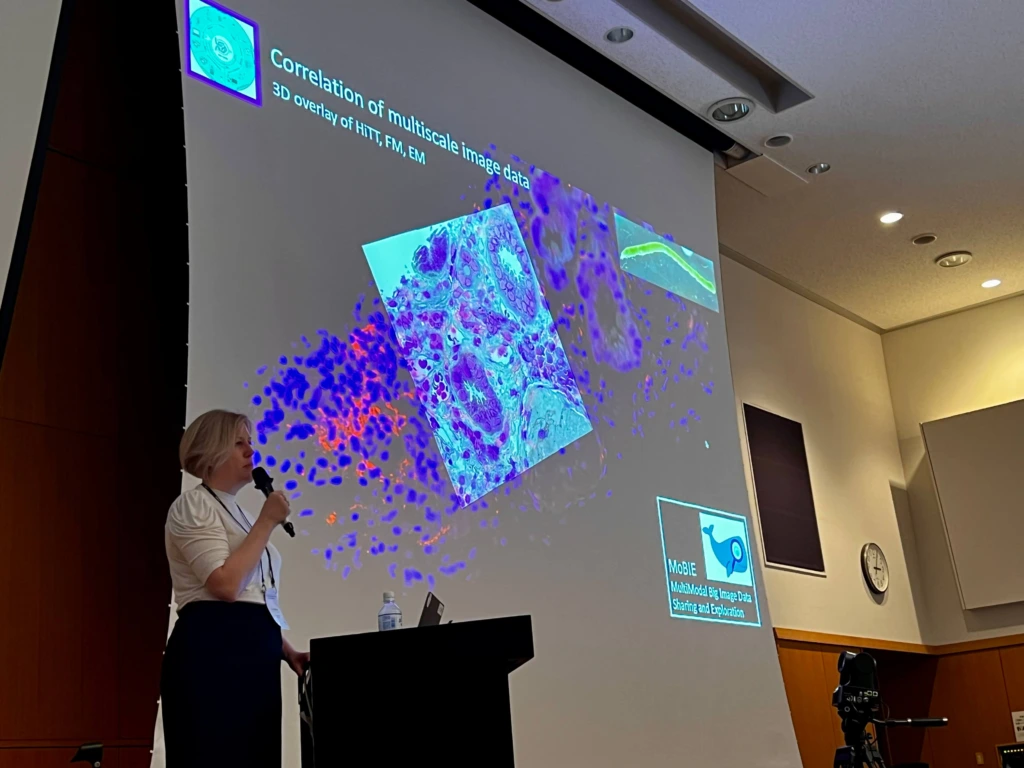
Panel Discussions
The Policy and Funders panel discussion explored the critical need for policies, sustainable funding, and collaborative strategies to enable image data sharing across disciplines and international boundaries. The session highlighted the need for compelling stories to illustrate the value of data reuse and stressed the importance of engaging skeptical biologists and the public through incentives, mandates, and policies to promote open data sharing.
The Towards FAIR image data panel explored the future of FAIR data, emphasizing the need for practical steps, global collaboration, and a clear vision for the next decade. Key topics included metadata standards, open-source platforms, and the potential of large language models to enhance interoperability. The discussion underscored the importance of funder engagement, community-driven initiatives, and marketing the value of life sciences. Challenges such as data storage costs, ethical concerns, and the need for curated repositories and incentives for researchers were highlighted.
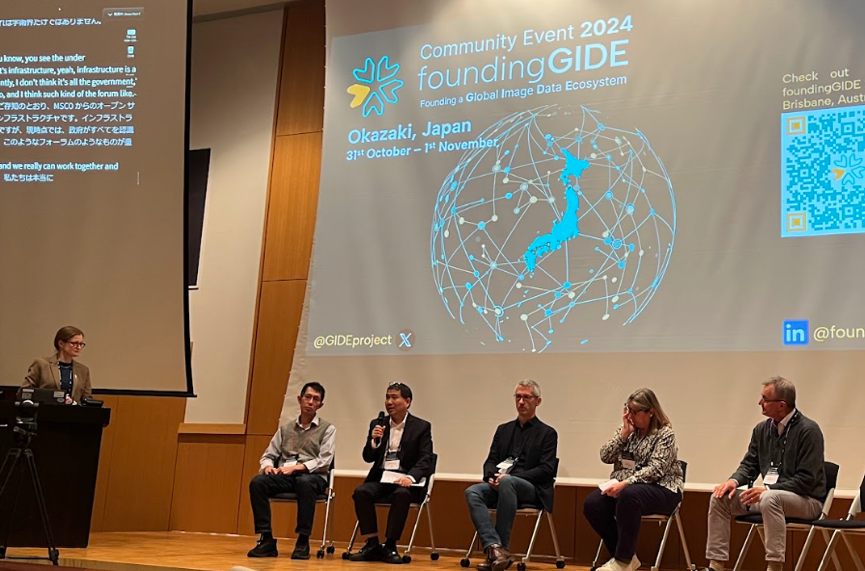
Panel on Policy and Funders. The session features from left to right: Masanori Arita from DNA Data Bank of Japan, Shaofeng Hu from UNESCO, France; Jan Ellenberg from EMBL and SciLifeLab, Sweden; Jo McEntyre from EMBL-EBI, UK; and Herbert Schaden, Zeiss, Germany. The panel was chaired by Antje Keppler (Euro-BioImaging).
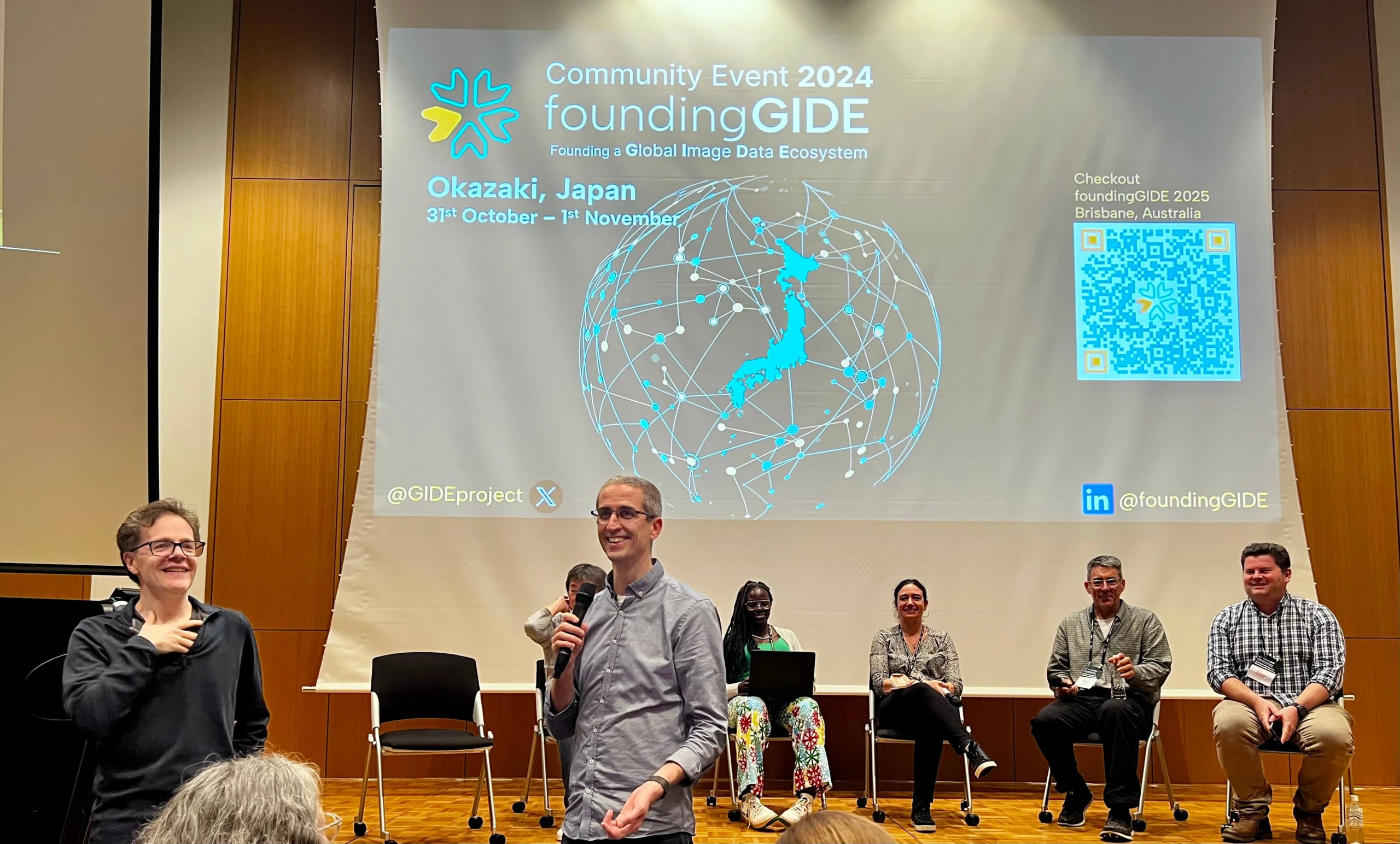
Panel on Towards FAIR image data. From left to right: Shuichi Onami from RIKEN, Japan; Joy Owango, The Africa PID Alliance, Kenya, Perrine Paul-Gilloteaux from CNRS Nantes and France Bio-Imaging, Stephen Jett, CZI and the Data Commons NIH and Nicholas Condon, The University of Queensland, Australia. The panel was chaired by Josh Moore (German BioImaging) and Matthew Hartley (EMBL-EBI).
Breakout session
The breakout room on Sustaining and coordinating a Global Bioimage Data Ecosystem emphasized bridging the knowledge gap between biological and data scientists, making data-sharing tools more user-friendly, and demonstrating the benefits of research data management. Challenges such as cultural resistance, inaccessible older data, and the need for institutional policies and incentives were discussed, along with the importance of leveraging regional and global networks.

The breakout room on Harmonizing Metadata Models: Bridging Efforts and Overcoming Challenges discussions highlighted the need for a flexible yet structured approach to standardizing metadata and dynamically updated community-driven metadata. Challenges such as the complexity of harmonizing ontologies and data models and ensuring detailed metadata for imaging techniques were emphasized. The session underscored the importance of global leadership, long-term maintenance, and investment in metadata standards, calling for community input and collaboration to refine and implement these efforts effectively.
The breakout room Working towards a GIDE: Community roles and opportunities highlighted global disparities in bioimaging data management and sharing, emphasizing the need for coordinated efforts to bridge gaps. Suggestions included fostering a culture of data sharing through ambassadors and top-down policy changes, particularly in under-resourced regions.
Resources from the event
Videos from the event are shared with our community on Euro-BioImaging YouTube channel while the presentation materials are shared on foundingGIDE Community Zenodo.
Day 1
- Welcome speeches by Shuichi Onami, John Eriksson, Aastha Mathur – video, slides
- Kazutsuna Yamaji: Current Status for Developing the Common Research Data Platform in Japan, slides, video
- Lucy Collinson: The volume EM community, and data in correlative and multimodal imaging, slides, video
- Masanori Arita: Data Sharing of Genetic Resources: perspectives from an INSDC member , slides, video
- Anne Plant: Metrology Meets Data Sharing, slides, video
- Wojtek Goscinski: An Overview of the Australian Digital Research Infrastructure Strategy, slides
Day 2
- Matthew Hartley: FoundingGIDE: Ontologies, metadata, identifiers, oh my! , slides, video
- Matthew Hartley: Image data interoperability with OME-NGFF, RO-Crate and linked data, slides, video
- Shuichi Onami: Landscape analysis of metadata usage in major bioimage repositories, slides, video
- David Poger: The Australian National PID Strategy and Roadmap, slides, video
- Dario Longo: Developing preclinical image metadata models and ontologies, presented by Susanne Vainio on behalf of Dario Longo , slides, video
- Tom Close: FrameTree: mapping data trees onto frames, slides, video
- Josh Moore: OME2024 NGFF Challenge Results, slides, video
- Caterina Strambio De Castillia: Data Management and Sharing for everyone: from the Bench to the Community and back again, slides, video
- Stefania Marcotti: Data in the wild – field notes from a core facility, slides, video
- Adán Guerrero – Challenges and Opportunities for FAIR Image Data in Latin American Bioimaging – Insights from the Data Science for Bioimaging Working Group, slides, video
- Toshiaki Katayama – Tools for integrated FAIR data a.k.a. Semantic Web / Knowledge Graphs / Linked Open Data, video
Next steps
foundingGIDE Community Event in Brisbane, Australia 2025
The next foundingGIDE Community Event is already on the horizon! Mark your calendars for October 17–18, 2025, in Brisbane, Australia. Stay tuned here.
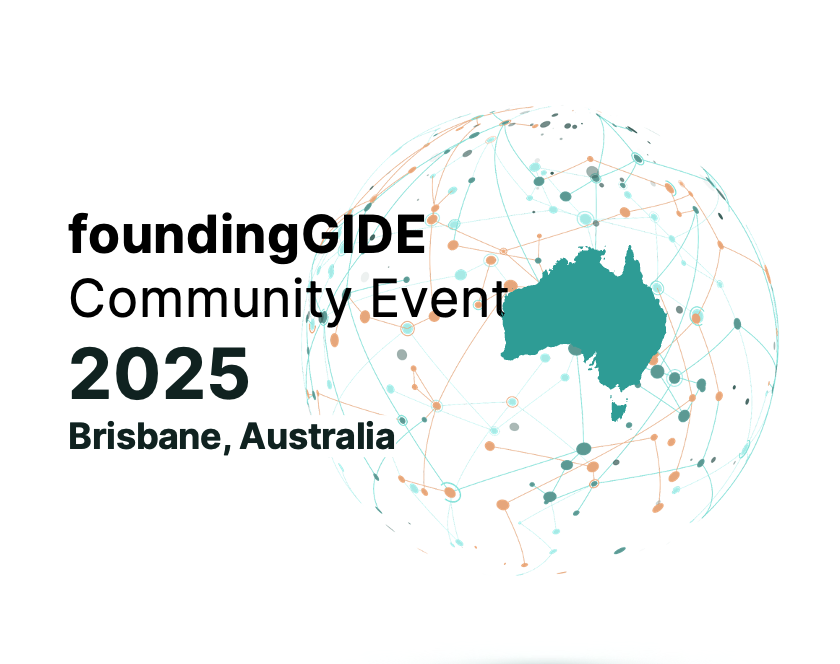
This event will be held back-to-back with International Data Week (October 13–16, 2025), a global conference dedicated to advancing the frontiers of research data. International Data Week will focus on themes like open data, data stewardship, and the critical role of data in driving scientific breakthroughs— complementing foundingGIDE’s mission.
Stay updated by singing up to our newsletter.